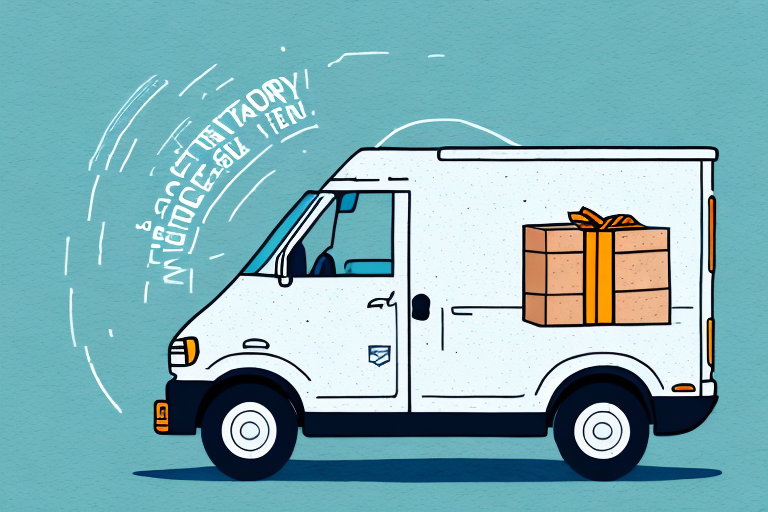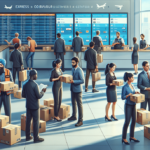What Does a Courier Do? A Comprehensive Guide
In today's fast-paced world, businesses and individuals rely on courier services to transport important documents and packages quickly and securely. This comprehensive guide explores the role of couriers, the evolution of courier services, the different types available, how to select the right service for your needs, and other essential aspects.
Understanding the Role and Responsibilities of a Courier
A courier is responsible for the pickup, transportation, and delivery of packages and documents from one location to another. The primary duties include:
- Ensuring Timely Pickup: Couriers must collect packages promptly from sender locations.
- Safe Transportation: Maintaining the security and integrity of packages during transit.
- Timely Delivery: Delivering packages to recipients within the promised timeframe.
- Obtaining Signatures: Securing proof of delivery through recipient signatures.
- Handling Payments: Collecting payments when necessary.
- Customer Communication: Providing updates and addressing any delivery issues.
Couriers may work for established courier companies or operate independently as contractors. They must possess excellent time management, communication, and customer service skills to ensure efficient and reliable delivery services.
The Evolution of Courier Services
Courier services have a long history, with their origins tracing back to ancient civilizations where messengers delivered messages on foot, horseback, or by boat. The role of couriers has significantly evolved with advancements in transportation and technology.
In the modern era, the rise of e-commerce has transformed courier services into an essential component of global business operations. According to a report by Statista, global e-commerce sales are projected to reach $6.3 trillion by 2024, highlighting the increasing demand for efficient courier services.
Technological innovations such as GPS tracking, real-time delivery updates, and automated sorting systems have enhanced the efficiency and reliability of courier services. Additionally, specialized services like same-day delivery, temperature-controlled transportation, and drone deliveries are emerging to meet specific market needs.
Types of Courier Services
Same-Day and Express Courier Services
Same-day courier services offer immediate delivery within hours, catering to urgent needs. Express services ensure that packages are delivered faster than standard shipping options, typically within one to two days.
Overnight and Next-Day Courier Services
Overnight couriers guarantee next-day delivery, providing a reliable option for time-sensitive shipments. This service is ideal for businesses needing swift delivery of documents and packages.
International Courier Services
International courier services facilitate the delivery of packages across borders, managing customs clearance and ensuring compliance with international shipping regulations. Companies like DHL and FedEx are prominent providers in this space.
Specialized Courier Services
- Medical Courier Services: Transporting medical supplies, equipment, and specimens with specialized handling requirements.
- Legal Courier Services: Delivering sensitive legal documents such as court filings and contracts with high security and confidentiality.
- Perishable Goods Courier Services: Handling temperature-sensitive items like food and pharmaceuticals using temperature-controlled transportation.
How to Choose the Right Courier Service
Selecting the appropriate courier service requires careful consideration of several factors to ensure your packages are delivered efficiently and securely. Here are key aspects to evaluate:
Cost and Pricing Structure
Compare the pricing models of different courier services, taking into account factors like weight, size, distance, and delivery speed. Look for transparent pricing without hidden fees.
Delivery Speed and Reliability
Assess the delivery timelines offered by each service. Reliability is crucial; read customer reviews and testimonials to gauge the consistency of their delivery performance.
Coverage Area
Ensure that the courier service covers the geographic areas you need, whether it's local, national, or international delivery.
Security and Tracking Capabilities
Choose a courier service that offers robust tracking systems, allowing you to monitor your package in real-time. Security measures, such as tamper-evident packaging and secure handling protocols, are essential for protecting valuable or sensitive items.
Customer Support
Effective customer support can resolve issues quickly. Look for services that provide multiple channels of communication, including phone, email, and live chat.
Reputation and Reviews
Research the courier company's reputation by reading online reviews and ratings on platforms like Trustpilot or Better Business Bureau.
Courier Services vs. Postal Services
While both courier and postal services facilitate the delivery of packages and documents, they differ in several key aspects:
- Delivery Speed: Courier services often provide faster delivery options, including same-day and next-day services, compared to standard postal services.
- Tracking and Reliability: Couriers typically offer more detailed tracking information and higher reliability, ensuring packages are delivered on time.
- Security: Courier services often provide enhanced security measures, making them preferable for valuable or sensitive items.
- Cost: Postal services usually offer more cost-effective solutions for non-urgent and less valuable shipments.
- Coverage: Postal services generally have a broader reach, delivering to more remote or rural areas.
Choosing between a courier and postal service depends on your specific needs, including urgency, package value, and budget.
Reliability and Security in Courier Services
Reliability and security are paramount in courier services, as customers entrust valuable and sensitive items for delivery. Key elements include:
Advanced Tracking Technologies
Modern courier services utilize GPS tracking and real-time updates to provide transparency and ensure accountability throughout the delivery process.
Secure Handling Procedures
Packages are handled with care using secure protocols to prevent loss, damage, or theft. This includes tamper-evident packaging and secure storage facilities.
Employee Training
Couriers receive specialized training to handle packages properly and manage any issues that arise during delivery, maintaining high standards of service.
A survey by the Courier Industry Association highlights that 90% of customers prioritize reliability and security when choosing a courier service, emphasizing their importance in customer satisfaction and business reputation.
The Delivery Process and Technology
From Pickup to Drop-off: The Delivery Workflow
The delivery process encompasses several stages:
- Package Pickup: The courier collects the package from the sender's location.
- Sorting and Transportation: Packages are sorted based on destination and transported using appropriate transportation modes.
- Tracking and Monitoring: Throughout transit, packages are tracked to ensure timely delivery.
- Final Delivery: The courier delivers the package to the recipient, obtaining necessary signatures or confirmations.
Innovative Technologies Enhancing Delivery
Technology plays a critical role in modern courier services:
- GPS Tracking: Allows real-time monitoring of package locations.
- Automated Sorting Systems: Enhances efficiency in processing large volumes of packages.
- Drone Deliveries: Emerging technology aimed at reducing delivery times, especially in hard-to-reach areas.
According to a McKinsey report, the integration of advanced technologies can lead to a 20% increase in delivery efficiency and a 15% reduction in operational costs.
Starting a Courier Business: Tips and Considerations
Conducting Market Research
Understand the demand, competition, and customer preferences in your target area. Identify niche markets, such as medical or legal courier services, to differentiate your business.
Developing a Business Plan
Outline your business objectives, target market, services offered, pricing strategy, and financial projections. A solid business plan is essential for securing financing and guiding your operations.
Obtaining Necessary Licenses and Insurance
Ensure compliance with local regulations by obtaining the required licenses and permits. Additionally, secure insurance coverage to protect against potential liabilities and damages.
Acquiring Equipment and Technology
Invest in reliable vehicles, tracking systems, and packaging materials. Implement software solutions for route optimization and package tracking to enhance service efficiency.
Building a Strong Reputation
Focus on delivering excellent customer service, ensuring timely deliveries, and maintaining open communication with clients. Positive reviews and word-of-mouth referrals are invaluable for business growth.
Conclusion
Courier services are indispensable in today's dynamic and interconnected world. By understanding the roles, types, and essential factors in selecting a courier service, you can ensure that your packages and documents are delivered efficiently and securely. Whether you're an individual, a business owner, or considering starting your own courier business, prioritizing reliability, security, and customer satisfaction will lead to successful outcomes.



















